What happens to your body when you don't get enough sleep
Weight gain, memory issues and other side effects of skipped ZZZs.
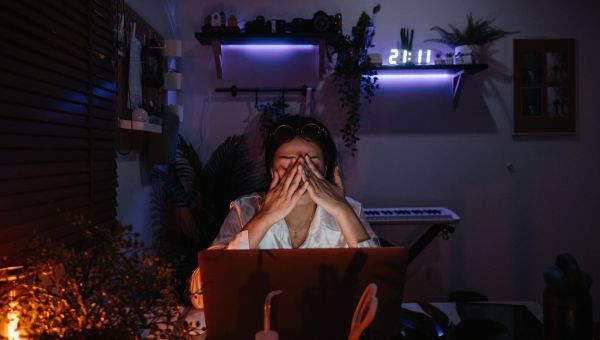
It’s a fact: Americans have trouble with sleep.
According to the National Sleep Foundation’s 2018 Sleep Health Index, which is done quarterly, 41 percent of Americans said that poor or insufficient sleep had affected their daily activities at least once in the preceding seven days.
And when it comes to the type of trouble many of us are experiencing, sleep expert and… Show More
It’s a fact: Americans have trouble with sleep.
According to the National Sleep Foundation’s 2018 Sleep Health Index, which is done quarterly, 41 percent of Americans said that poor or insufficient sleep had affected their daily activities at least once in the preceding seven days.
And when it comes to the type of trouble many of us are experiencing, sleep expert and clinical psychologist Michael Breus, PhD, thinks that most people deal with either acute or long-term sleep deprivation as opposed to complete sleep deprivation. In other words, most people are getting less than the recommended 7 to 9 hours of sleep per night over the course of one or more days rather than not getting any sleep at all.
It’s important to keep in mind that lack of sleep affects everyone differently and researchers don’t fully understand the short and long-term effects of too little sleep. But the benefits of regular sleep are very much understood.
Dr. Breus says there are three different areas of concern when we talk about sleep deprivation after acute or long-term sleep deprivation: emotional, physical and cognitive. Here’s what you can expect after one or more nights of poor sleep—plus what you can do to improve your sleep.
Medically reviewed in January 2020.
Show Less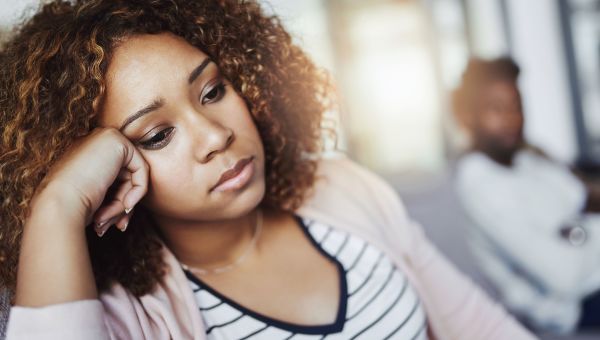
Your emotions may go haywire
You may have heard from your significant other or coworker that you are more short-tempered, negative or sensitive following a night or two of poor sleep. You may have even noticed it, too. And there’s some science behind it.
“From an emotional standpoint, we see that the level of negative… Show More
You may have heard from your significant other or coworker that you are more short-tempered, negative or sensitive following a night or two of poor sleep. You may have even noticed it, too. And there’s some science behind it.
“From an emotional standpoint, we see that the level of negative reactivity seems to heighten when skimping on sleep,” says Breus. “Let’s say you lost two hours of sleep that you would normally get. There’s a greater likelihood that the next day you’re going to view things as negative as opposed to positive.”
Show Less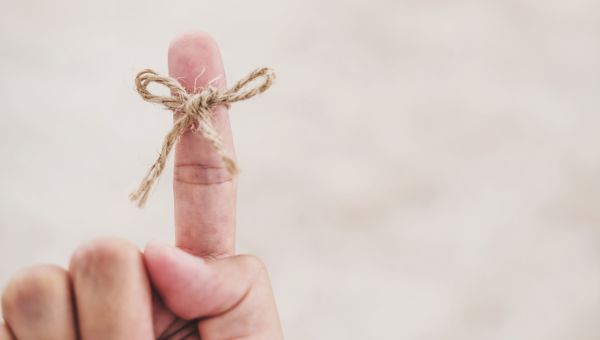
You may have trouble remembering things
Some research has shown that when people get adequate sleep, the areas of the brain that control the accuracy and speed of memories are more active than in those who aren’t getting enough sleep. And additional research shows that if you learn how to do something before going to sleep, you may… Show More
Some research has shown that when people get adequate sleep, the areas of the brain that control the accuracy and speed of memories are more active than in those who aren’t getting enough sleep. And additional research shows that if you learn how to do something before going to sleep, you may remember it better in the long term.
With this in mind, if you’re losing sleep, you may have trouble remembering even the smallest things. “You may forget where you put your car keys or what’s on your grocery list when you get to the store,” says Breus. And you may not remember everything accurately either: It’s likely you’ll forget bits and pieces of things that happened at an event. You may also have trouble making decisions because you have a hard time assessing the problem at hand.
Show Less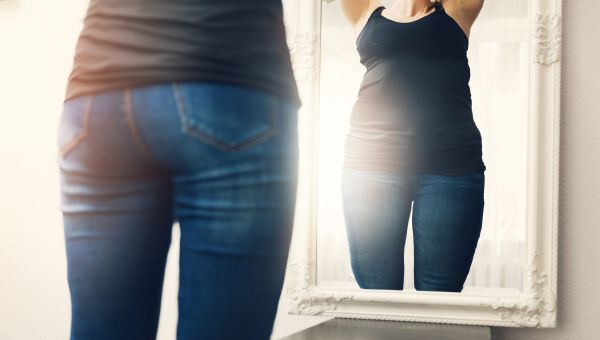
You might even gain weight
Too little sleep—and too much—may wreak havoc on your metabolism. A June 2018 study published in BMC Public Health looked at 133,608 Korean men and women between the ages of 40 and 69 and found that those who reported sleeping less than six hours per night—or more than ten hours—had a higher risk… Show More
Too little sleep—and too much—may wreak havoc on your metabolism. A June 2018 study published in BMC Public Health looked at 133,608 Korean men and women between the ages of 40 and 69 and found that those who reported sleeping less than six hours per night—or more than ten hours—had a higher risk of metabolic syndrome, a cluster of conditions like high blood pressure, extra body fat around the waist and unhealthy cholesterol levels.
And not getting enough sleep may also lead to weight gain, too. Breus explains that hormonal imbalances may arise as a result of inadequate sleep. Sleep deprivation can lead to lower levels of the hormone leptin, which is responsible for signaling to the body that you’re full. On the flip side, levels of ghrelin—the hormone that encourages feelings of hunger—may rise.
When you’re sleep deprived, you may also notice that you tend to reach for sugary and fatty foods which, if eaten regularly, can also contribute to weight gain. You may also be tempted to eat more the day after a restless night’s sleep.
Show Less
Your risk of having an accident increases
What worries Breus the most about his sleep-deprived patients? Getting behind the wheel. “There are so many accidents occurring because of drowsy driving,” he says.
You’re also increasing your risk of accidents in general when you’re not sleeping, including those from operating machinery. Because… Show More
What worries Breus the most about his sleep-deprived patients? Getting behind the wheel. “There are so many accidents occurring because of drowsy driving,” he says.
You’re also increasing your risk of accidents in general when you’re not sleeping, including those from operating machinery. Because your judgment is impaired after a restless night’s sleep, you may feel like you’re fine to drive or operate machinery, but you’re not.
Unfortunately, drowsy driving is very common in the United States. According to the Centers for Disease Control and Prevention, 1 out of 25 adults report having fallen asleep behind the wheel in the previous 30 days. The National Highway Traffic Safety Administration says that in 2016, drowsy driving-related crashes were responsible for 803 deaths.
When it comes to workplace injuries, a study, published in 2013, reviewed 27 observational studies and found that workers with sleep problems were 1.62 times more likely to be injured than workers who didn’t have sleep problems. What’s more, 13 percent of workplace injuries can be credited to sleep issues.
“If you're too tired to drive, you shouldn't be driving,” Breus says. He suggests using ride-share services or cabs if you need to travel, or holding a meeting or event at your house so guests can come to you. Meanwhile, if you’re too tired to perform your duties at work, notify your manager, and if sleep problems persist, talk to your doctor.
Show Less
A sleep doctor’s tips for better ZZZs
Breus hears the saying “I’ll sleep when I’m dead” all too often, but he wants people to realize that lack of sleep can impair their health.
He also recognizes that it doesn’t help to blame patients for their sleep deprivation, but rather to help them identify those aspects of their lifestyle—… Show More
Breus hears the saying “I’ll sleep when I’m dead” all too often, but he wants people to realize that lack of sleep can impair their health.
He also recognizes that it doesn’t help to blame patients for their sleep deprivation, but rather to help them identify those aspects of their lifestyle—whether that daily coffee habit or hyper-connectedness to electronic devices—that are leading to sleep troubles.
Read on for some of Breus’s top tips for getting more—and better—ZZZs.
Show Less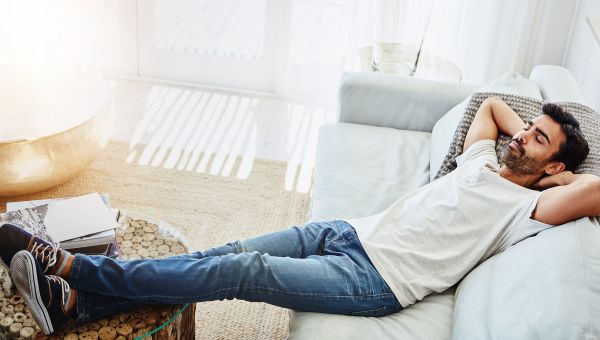
Tip #1: Naps are okay, but keep track of time
If you’re feeling drowsy—and you’re in an appropriate place to take a nap—it’s okay to snooze. But Breus says naps should last no longer than 20 to 25 minutes: “Otherwise, you're going to feel worse than when you went to sleep.” Napping for a short period of time can improve alertness and… Show More
If you’re feeling drowsy—and you’re in an appropriate place to take a nap—it’s okay to snooze. But Breus says naps should last no longer than 20 to 25 minutes: “Otherwise, you're going to feel worse than when you went to sleep.” Napping for a short period of time can improve alertness and concentration.
When you do take a nap, try to do so in a quiet, dark place. And if you’re having trouble falling asleep at night, avoid naps all together.
Show Less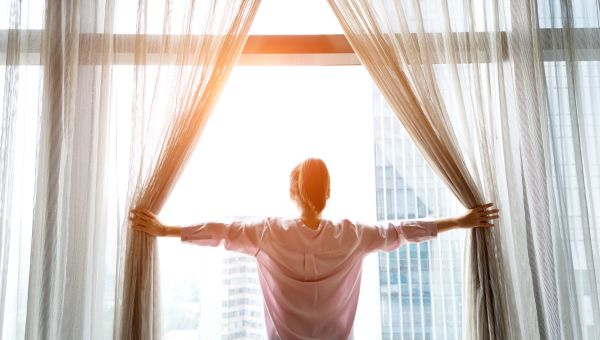
Tip #2: Get some sunlight
Another way to get better sleep at night is to expose yourself to sunlight first thing in the morning and multiple times throughout the day, says Breus. “Sunlight turns off the melatonin faucet in your brain, so you don’t have to feel tired through the day,” he explains. That way, you’ll help your… Show More
Another way to get better sleep at night is to expose yourself to sunlight first thing in the morning and multiple times throughout the day, says Breus. “Sunlight turns off the melatonin faucet in your brain, so you don’t have to feel tired through the day,” he explains. That way, you’ll help your body wind down naturally when sunlight fades later on. On the flip side, avoiding bright light in the evening can also keep your circadian rhythm steady.
In the morning, try opening your curtains when you first wake up then head outdoors to walk your dog or take a jog around the neighborhood. Instead of taking a coffee break in the afternoon, step out of your office and walk around the block to get some sunshine.
Show Less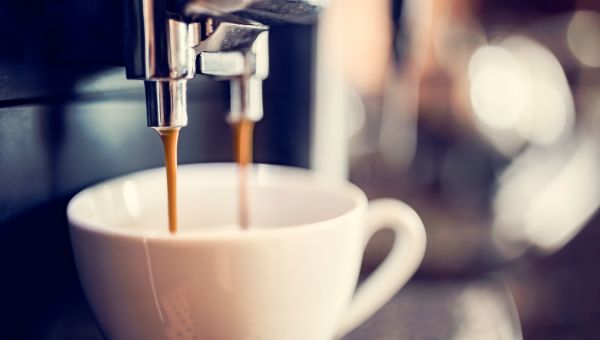
Tip #3: Use caffeine sparingly
You don’t have to completely forgo your morning cup of coffee, but when it comes to caffeine, you should be mindful about when and how much of it you drink.
Caffeine is a stimulant, so it can make it difficult to fall asleep and can also affect the quality of the sleep you do get, says Breus. In… Show More
You don’t have to completely forgo your morning cup of coffee, but when it comes to caffeine, you should be mindful about when and how much of it you drink.
Caffeine is a stimulant, so it can make it difficult to fall asleep and can also affect the quality of the sleep you do get, says Breus. In general, most healthy adults should stick to 400 milligrams or less of caffeine per day, which is roughly the equivalent of four 8-ounce cups of coffee.
Pregnant women should stick to 200 milligrams or less, while those with high blood pressure or heart problems should talk with their doctor about what’s safe for them. And everyone should avoid all types of caffeine close to bedtime. Breus advises cutting off your daily intake around 2 pm, since caffeine can take up to 10 hours to leave the bloodstream.
Caffeine affects everyone differently, so it’s important that you talk with your doctor about the right amount for you.
Show Less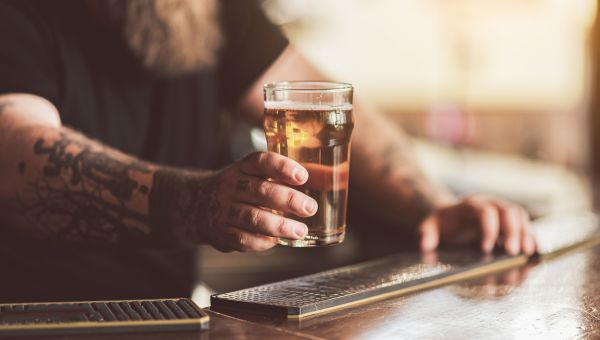
Tip#4: Limit alcohol
Alcohol is a depressant, which initially may cause you to feel drowsy or fall asleep faster. But later on, it’s likely to interrupt your sleep during the night. Consuming alcohol can also:
- Disturb your circadian rhythm
- Interfere with REM sleep, the most restorative kind of sleep
- Make breathing … Show More
Alcohol is a depressant, which initially may cause you to feel drowsy or fall asleep faster. But later on, it’s likely to interrupt your sleep during the night. Consuming alcohol can also:
- Disturb your circadian rhythm
- Interfere with REM sleep, the most restorative kind of sleep
- Make breathing problems, like snoring and sleep apnea, worse
- Cause you to make extra bathroom trips
Breus recommends sticking to general alcohol guidelines—no more than one glass a day for women, two for men—and striving to go even lower if possible—2 to 3 drinks per week or fewer for men and women in order to get good sleep. And it’s always best to avoid alcohol close to bedtime.
When it comes to sleep, getting enough is very important. If you’re having trouble doing so, talk with your doctor. And try tracking your sleep with Sharecare, a free app for iOS and Android, so you can share your findings with your doctor.
Show LessMore On


video
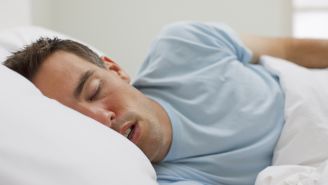
article

slideshow


video


video
